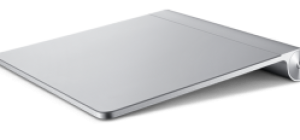With a need for mobility, limited dorm room space, and limited access to computer labs, a laptop is a necessity for any college student. While almost every laptop will offer what you need to get by, like web browsing, word processing, spreadsheets, and other software, the right laptop will make life and school much easier.
How compatible is it with my school?
Although it would seem like you shouldn't have to worry about whether you're on a Mac or PC, there are can still be difficulty at some schools accessing their networks from Apple computers, so be sure to check with your university to see how widely supported different devices and platforms are. Odds are you'll still be able to use your device, but not all professors will be sympathetic if they can't open you're document or you're having trouble accessing some assigned reading the night before a quiz.
How awesome is it?
Let's be honest, the bells and whistles are nice, and your laptop might be one of your primary forms of entertainment over the next four or five or six years. So a larger screen for watching movies or graphics card for gaming isn't such a bad idea. You'll be spending a lot of time with this device over the next few years, so you should just like it, but don't forget the phrase, "tools, not jewels." Your laptop, above all else will be a useful tool for completing assignments, and you shouldn't sacrifice usability for entertainment purposes or the logo.
So, what's your major?
This will tell you a lot about what you need your computer to be really good at. Creatives will have different needs than engineers, and you'll want a laptop optimized for the tasks most important to you.
The coursework for a lot of majors will have the same requirements. You'll need to write papers and do research online. If this is you, you won't need a specialized laptop. You just need something that fits you and your life. But if you are a planning to go into computer science or the arts, you may want something a little different.
Computer Science
If you're looking to become a computer programmer or software developer you'll probably want to go with a PC you can customize and make upgrades to over the course of your college career. You might also want to look for keyboard that is Cheeto dust resistant.
Graphic Design
A Mac. Everyone else is going to have one.
How are you supplementing?
The devices you already have or know you'll get should be a factor in your decision. Consider compatibility between tablet, laptop, desktop, and smartphone if you'll be using all your devices for the same tasks and need to be able to sync each easily.
If you have a tablet but no desktop computer, you might want to go with a larger laptop for better performance in your room and sacrifice some mobility, knowing your tablet can pick up the slack.
An external keyboard and monitor can also, basically, transform your laptop into a desktop when the need comes to spend hours in front of it reading and typing papers. This will also make it more appealing for streaming movies and TV shows.
What the specs mean
Operating system
This is what determines what software you'll be able to work with, although most software is available for both Windows and Apple OS. Only if you're interested in computer science will you want to think about the Linux operating system.
CPU
The central processing unit (CPU) is what's going to give your computer its speed. Some processors have more than one core, which is allows it to be better at running multiple programs. Also, understand that two processors with the same GHz won't necessarily be equally fast.
RAM
RAM is the memory of your computer. Most computers today will be in the 2–8GB range.
Hard drive
Your hard drive is all about storage. How much storage you need will depend a lot on the quantity and medium of the media you plan to store on your laptop. A film student might need considerable more storage than an English student or Poly-sci major.
Display
The resolution of the computer screen will be indicated with a pixel by pixel measure, like 1920×1080, with the more pixels the better.
Other considerations
Battery life
The expected battery life is not always going to be accurate based on how you use your computer. Battery life will also diminish over the life of the battery, so make sure the battery life quoted well exceeds what you'll need.
Screen size
Too small a screen can become difficult to focus on over extended periods of time, but too large a screen mean a bigger laptop to carry around, so you'll need to decide what you want to sacrifice.
Weight
In general, comparable laptops are becoming lighter, but laptops are also becoming bigger, so some are still heavy. For most, this shouldn't be a big concern, but if you will be carrying your laptop with you everywhere, weight might become a consideration.
Your answer
The laptop you choose will depend on a lot of variables, but essentially, it should be about making your college life easier. You'll have enough challenges, and technology shouldn't be another obstacle. With any luck, your laptop or how it works will never weigh on your mind.
Matt Smith works for Dell and has a passion for tech gadgets, reading, and is a big proponent of continuing education. Outside of work he enjoys entrepreneurship, being with his family, and the great outdoors.








